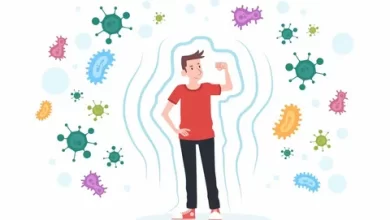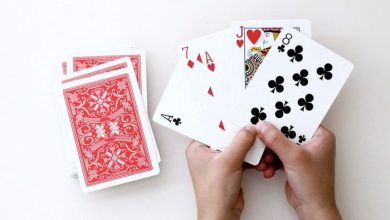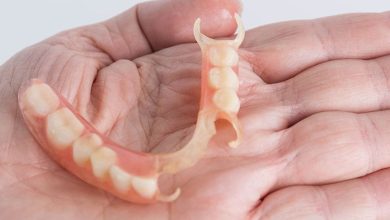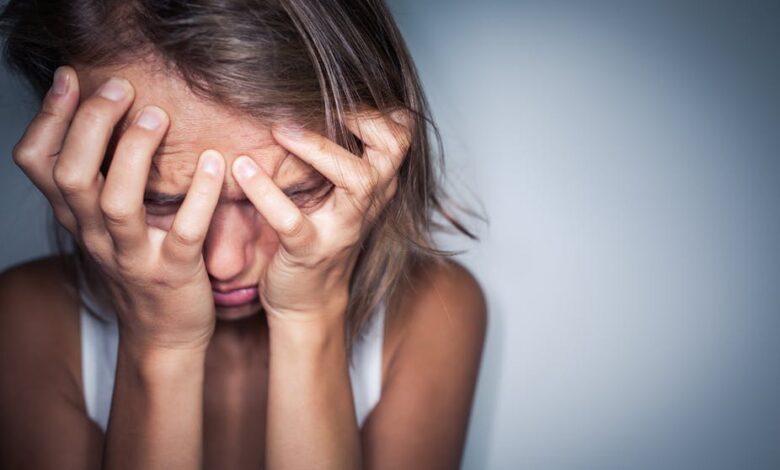
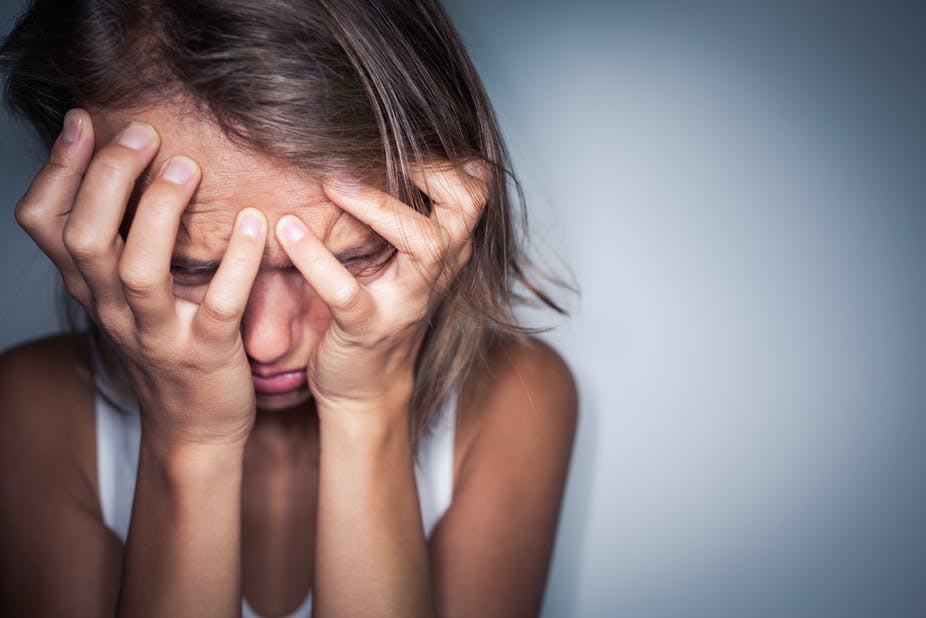
Anxiety can be normal in stressful situations such as public speaking or taking a test. Anxiety is only an indicator of underlying disease when feelings become excessive, all-consuming and interfere with daily living.
Intense, excessive and persistent worry and fear about everyday situations. Fast heart rate, rapid breathing, sweating and feeling tired may occur.
Table of Contents
Anxiety disorders
The duration or severity of an anxious feeling can sometimes be out of proportion to the original trigger, or stressor. Physical symptoms, such as increased blood pressure and nausea, may also develop. These responses move beyond anxiety into an anxiety disorder.
The APA describes a person with anxiety disorder as “having recurring intrusive thoughts or concerns.” Once anxiety reaches the stage of a disorder, it can interfere with daily function.
Causes
The causes of anxiety disorders are complicated. Many might occur at once, some may lead to others, and some might not lead to an anxiety disorder unless another is present.
Possible causes include:
- environmental stressors, such as difficulties at work, relationship problems, or family issues
- genetics, as people who have family members with an anxiety disorder are more likely to experience one themselves
- medical factors, such as the symptoms of a different disease, the effects of a medication, or the stress of an intensive surgery or prolonged recovery
- brain chemistry, as psychologists define many anxiety disorders as misalignments of hormones and electrical signals in the brain
- withdrawal from an illicit substance, the effects of which might intensify the impact of other possible causes
Symptoms
While a number of different diagnoses constitute anxiety disorders, the symptoms of generalized anxiety disorder (GAD) will often include the following:
- restlessness, and a feeling of being “on-edge”
- uncontrollable feelings of worry
- increased irritability
- concentration difficulties
- sleep difficulties, such as problems in falling or staying asleep
Types Of Anxiety
Generalized anxiety disorder:
This is a chronic disorder involving excessive, long-lasting anxiety and worries about nonspecific life events, objects, and situations. GAD is the most common anxiety disorder, and people with the disorder are not always able to identify the cause of their anxiety.
Panic disorder:
Brief or sudden attacks of intense terror and apprehension characterize panic disorder. These attacks can lead to shaking, confusion, dizziness, nausea, and breathing difficulties. Panic attacks tend to occur and escalate rapidly, peaking after 10 minutes. However, a panic attack might last for hours.
Panic disorders usually occur after frightening experiences or prolonged stress but may also occur without a trigger. An individual experiencing a panic attack may misinterpret it as a life-threatening illness, and may make drastic changes in behavior to avoid future attacks.
Specific phobia:
This is an irrational fear and avoidance of a particular object or situation. Phobias are not like other anxiety disorders, as they relate to a specific cause.
A person with a phobia might acknowledge a fear as illogical or extreme but remain unable to control feelings anxiety around the trigger. Triggers for a phobia range from situations and animals to everyday objects.
Agoraphobia:
This is a fear and avoidance of places, events, or situations from which it may be difficult to escape or in which help would not be available if a person becomes trapped.
People often misunderstand this condition as a phobia of open spaces and the outdoors, but it is not so simple. A person with agoraphobia may have a fear of leaving home or using elevators and public transport.
Selective mutism:
This is a form of anxiety that some children experience, in which they are not able to speak in certain places or contexts, such as school, even though they may have excellent verbal communication skills around familiar people. It may be an extreme form of social phobia.
Social phobia:
This is a fear of negative judgment from others in social situations or of public embarrassment. Social anxiety disorder includes a range of feelings, such as stage fright, a fear of intimacy, and anxiety around humiliation and rejection.
This disorder can cause people to avoid public situations and human contact to the point that everyday living is rendered extremely difficult.
Separation anxiety disorder:
High levels of anxiety after separation from a person or place that provides feelings of security or safety characterize separation anxiety disorder. Separation might sometimes result in panic symptoms.
Home Remedy For Anxiety
1. Stay active
Regular exercise is good for your physical and emotional health. Regular exercise works as well as medication to ease anxiety for some people.
And it’s not just a short-term fix; you may experience anxiety relief for hours after working out.
2. Don’t drink alcohol
Alcohol is a natural sedative. Drinking a glass of wine or a finger of whiskey when your nerves are shot may calm you at first. Once the buzz is over, however, anxiety may return with a vengeance.
If you rely on alcohol to relieve anxiety instead of treating the root of the problem, you may develop alcohol dependence.
3. Practice deep breathing
Shallow, fast breathing is common with anxiety. It may lead to a fast heart rate, dizziness or lightheadedness, or even a panic attack.
Deep breathing exercises the deliberate process of taking slow, even, deep breaths can help restore normal breathing patterns and reduce anxiety.
4. Eat a healthy diet
Low blood sugar levels, dehydration, or chemicals in processed foods such as artificial flavorings, artificial colorings, and preservatives may cause mood changes in some people.
A high-sugar diet may also impact temperament. If your anxiety worsens after eating, check your eating habits. Stay hydrated, eliminate processed foods, and eat a healthy diet rich in complex carbohydrates, fruits and vegetables, and lean proteins.
5. Meditate
A main goal of meditation is to remove chaotic thoughts from your mind and replace them with a sense of calm and mindfulness of the present moment. Meditation is known for relieving stress and anxiety.
30 minutes of daily meditation may alleviate some anxiety symptoms and act as an antidepressant.
6. Ditch caffeine
If you have chronic anxiety, caffeine is not your friend. Caffeine may cause nervousness and jitters, neither of which is good if you’re anxious.
Caffeine may cause or worsen anxiety disorders. It may also cause panic attacks in people with panic disorder. In some people, eliminating caffeine may significantly improve anxiety symptoms.
7. Stop smoking
Smokers often reach for a cigarette during stressful times. Yet, like drinking alcohol, taking a drag on a cigarette when you’re stressed is a quick fix that may worsen anxiety over time.
The earlier you start smoking in life, the higher your risk of developing an anxiety disorder later. Research also suggests nicotine and other chemicals in cigarette smoke alter pathways in the brain linked to anxiety.
For any important information please contact us Email GadgetsNg info@gadgetsng.com
[Button id="1"]
